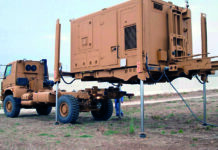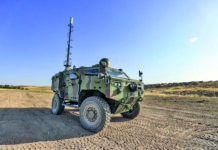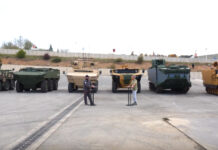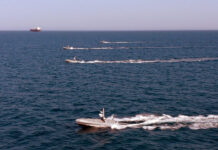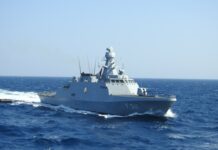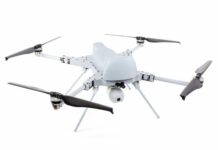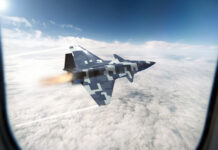The Police Operations Department of the Directorate-General for Security is a special police unit for combating terrorism and violent and organised crime. Its name is Polis Özel Harekat (PÖH), which translates as Police Special Action. After the failed military coup of 15 July 2016, the PÖH special unit was transformed into a paramilitary unit.
The PÖH was founded on 22 March 1983 by decision of the Minister of the Interior and placed under the command of the Ministry of Public Security. Initially, the unit was responsible for organised and violent crime, hostage recovery, , and providing bodyguards for Turkish officials and ambassadors to the Turkish state. In 1987, the Ministry of Public Security subsumed the unit and assigned it to the Counter Terrorism Division of the Turkish Police under the direction of Special Operations Group Authorities. Since its establishment, not only has the organization’s responsibility expanded, but the units are now operating with specialized equipment in rural, mountainous and remote areas against terrorist organizations such as PKK, YPG, PYD, TKP-C and IS. On 13 July 1993, the unit was turned into a Special Police Task Force within the Directorate General for Security and, following the coup d’état attempt, into a ‘Bureau for Special Police Operations’ on 25 August 2017. It now reports directly to the Minister of the Interior, while operating under the Directorate-General for Security. The Minister decides on PÖH deployments. Its headquarters is located in Ankara’s Gölbasi district and is headed by a president who is supported by three vice-presidents and ten heads of unit. The PÖH is based in 62 provinces and is subdivided into working groups, special units, logistics, personnel, training and education units.

Training and Education
In its early days, the PÖH unit, consisting of several hundred police officers, occupied a special position in the Turkish national consciousness. Recruitment criteria are very similar to that in the West; physical ability and stamina are necessary requirements, but another requirement was a university degree or a successful degree from the Turkish police academy. After the attempted coup d’état, thousands of police officers were arrested for being members of the Islamist Fetullah Gülen movement, which forced the government to quickly fill the vacancies. This explains why PÖH has grown rapidly out of fear of another military coup. For this reason, the admission criteria were reduced from university degree to high school diploma. During the state of emergency, the PÖH hired a further 10,000 new police officers. While the selection procedures were adapted to the difficult situation of the police, operational training and shooting practice were intensified. Of course, training and further education will also take place in the future professional life. The headquarters in Gölbasi is developing new training concepts, personnel structures and armament systems, among other things. The PÖHs is one of the few security forces in the world to deploy women troops in frontline combat operations. In August 2019, Turkish Interior Minister Süleyman Soylu published the latest figures, according to which there are 25,000 PÖH members and numbers that are growing.
Resources and Missions
Special units are a country’s strategic resource and their deployment is of great importance. Mission success frequently depends on expensive equipment. Until 2015, PÖH units were equipped with short- and long-range weapons and protective equipment against ballistic threats similar to Western organizations. After the coup d’état attempt, however, they also received heavy weapons. These include short and long rifles with laser modules, foreign branded precision rifles, hand grenades, and so on. In the last three years, additional large-scale equipment has been purchased, transforming the PÖH more into a paramilitary unit. These are heavy armoured vehicles of domestic production, such as the BMC KIRPI I+II, BMC VURAN, BMC AMAZON, NUROL EJDER, OTOKAR COBRA 2, and OTOKAR URAL. They also operate Sikorsky UH-60 BLACK HAWK helicopters to take them to inaccessible places. President Erdogan also considered equipping the PÖH units with T-129 combat helicopters, but these considerations were later discarded. The PÖH also have frogmen with high-speed boats and corresponding weapons. The types of operations are categorised according to special tasks:
- Direct Action – combat operations of operational and tactical importance,
- Reconnaissance – reconnaissance and information gathering,
- Hostage Recovery
- Special Police Support
- Training
- Counter-terrorism
- Development of tactics – testing new methods, tactics and techniques,
- Covert Operations – at home and abroad, in particular in Syria and Iraq.
International Networking
Since their foundation, PÖH members have helped other countries to set up special units of their own, for example in Afghanistan, Albania, Algeria, Azerbaijan, Bosnia and Herzegovina, Jordan, Iraq, Kosovo, North Macedonia, Uzbekistan, Pakistan, Poland, and Syria. In international workshops and training courses, they network with other special forces abroad and exchange important information and skills.
Interoperability
After the coup d’état attempt, the PÖH not only grew in personnel, but also acquired additional competences to be able to cooperate more intensively with the Turkish army and the paramilitary units of the gendarmerie at both home and abroad. Through its interoperability with regular Turkish troops, PÖH has acquired the capabilities of various army systems. The special police units now also operate heavy weapons. The joint involvement of PÖH and the Turkish military initially had a difficult birth.
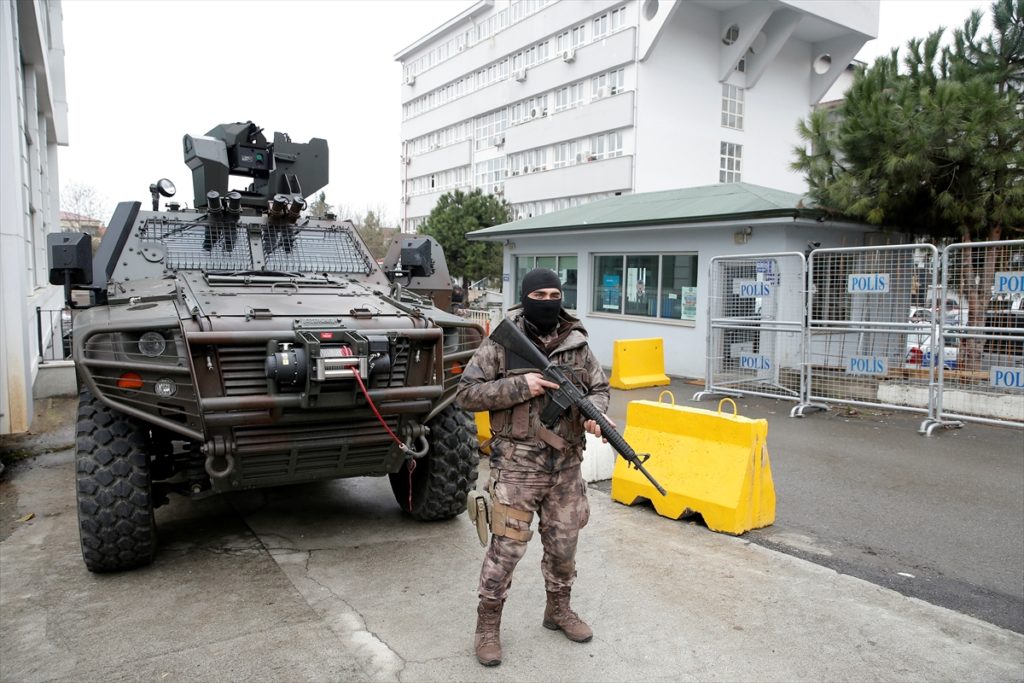
In the initial phase of the joint operations in South East Anatolia and Northern Syria, there were strategic and tactical problems that inevitably led to losses at the operational level. To overcome this, three major strategic adjustments were made with the Turkish military in terms of military planning, tactical planning and medical planning. In military planning, the planning and command principles of Special Forces operations were taught at the Task Force level, so that planning is carried out at the highest level. In tactical planning, the tasks of the PÖH concern not only the freeing of hostages, the fight against terrorist networks or the arrest of wanted persons, but the special units must also be able to regard the materials and equipment of the military as their own weapon systems and to carry out operations independently in the mountains, deserts or forests, especially in the Black Sea region. If the PÖH and the JÖH (special units of the gendarmerie) have to operate far away from their own troops, they should also be able to take medical care into their own hands, for example, to treat the injured until they are handed over to the rescue teams of the regular army. These three parameters enable the PÖH to conduct joint operations with the military at home and abroad.
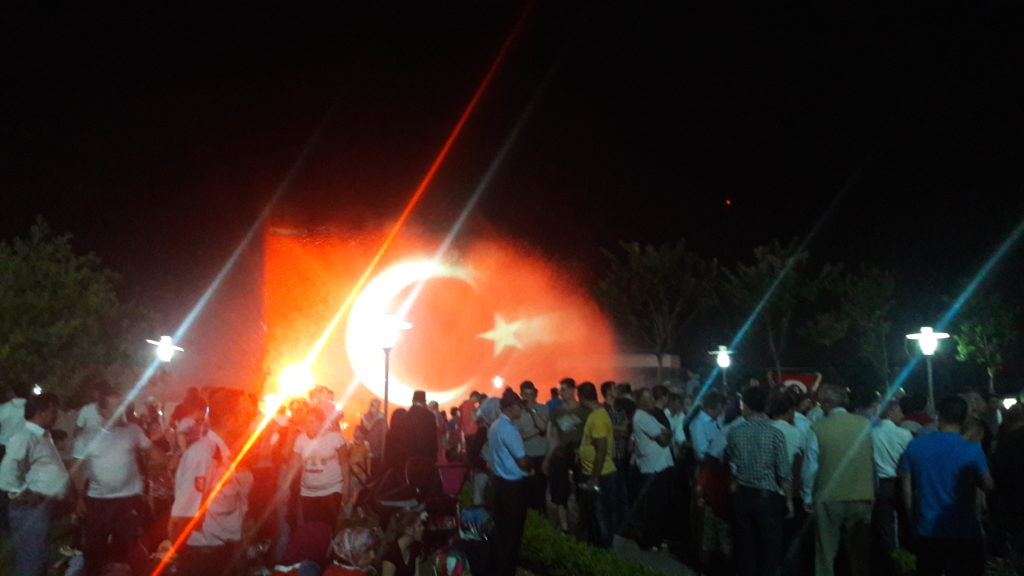
The Trench Operations
After the parliamentary elections in Turkey in June 2015, the Kurdish terrorist organisation PKK intensified the bomb attacks on the security forces and the civilian population with the aim of plunging South Anatolian cities into chaos. To contain the situation, on 24 and 25 July 2015 the General Directorate of Police launched countermeasures against the PKK, DHKP-C and ISIS in many cities. The fighting escalated rapidly and led to a war-like situation in the region. The PKK had grown rapidly because it used the “solution process” initiated by the AKP government from September 2013 to July 2015 to reform and prepare for home and street fighting. During these two years, many PKK fighters had moved from the mountains to the inner cities, turning many houses into large ammunition and weapons depots and connecting hundreds of houses with tunnels. During the fighting, the Turkish armed forces, especially the PÖHs in the southeast Anatolian cities of Diyarbakir, Hakkari, Cizre, Mardin and Nusaybin, suffered losses during house-to-house fighting. The trench warfare was exhausting. The terrorists tried to mobilize the civilian population against the Turkish armed forces. City curfews were imposed and large areas were temporarily declared military security zones. Curfews were only abolished once the cities were liberated from PKK terrorists. The PÖHs and army confiscated thousands of large-calibre weaponsand defused over 10,000 IEDs. After the fighting, the cities were rebuilt. Almost 40,000 security forces and well over 5,000 terrorists were involved in the fighting – 250 members of the army and police died, and the PKK’s losses were well over 3,000. From then on, the population admired the PÖH all the more, and the number of applicants increased rapidly.

The Failed Coup d’État in 2016
The attempt by parts of the Turkish military to overthrow the Turkish government of President Recep Tayyip Erdoğan and the cabinet of Binali Yıldırım (AKP), with the help of US-based priest Fetullah Gülen, is perceived in recent Turkish history as the military’s betrayal of its own people. In Ankara and Istanbul, there were serious clashes between the putschists and civilian population. The civilian population obstructed the coup by often grouping themselves in front of tanks, which resulted in dozens of civilians being killed. More than 250 people were killed. The PÖHs and the police, together with the population, joined forces against the putschists and fought them with small arms.
The putschists undertook cruel action against the population. The situation escalated when the parts of the air force attacked the Parliament, the secret service centre Millî İstihbarat Teşkilâtı (MİT) and PÖH headquarters in Ankara/Gölbasi with bombs. On the evening of 15 July, the senior leadership of PÖH were called to a meeting at the headquarters to discuss how to address the attempted coup d’état. It was at this moment when the F-16 aircraft bombed the headquarters, killing 51 elite police officers, mbers of PÖH and while an F-16 downed a police helicopter. All in all, the botched coup attempt damaged the reputation of the army among the Turkish population, and saw thousands of young volunteers applying to join the police service. The destroyed PÖH headquarters was quickly rebuilt and ceremoniously reopened by President Erdogan, with family members of killed PÖH officers present.
The Turkish Military Offensive in Northern Syria from 2016 to 2017
Turkey`s military offensive ‘Operation Euphrates Shield’, which began on 24 August 2016, saw Turkey become the third country after Russia and Iran to intervene in Syria. Later, the US armed forces would also intervene in Syria, alongside several Kurdish militias, including PYD, the ‘henchmen’ of the PKK terrorist organization. The reason for the military offensive was an IS suicide attack in Gaziantep on 20 August 2016 that killed 60.
The Turkish military offensive had two aims: first, to ensure security at Turkey`s southern border by ridding the region of terrorist groups such as PYD, PKK and IS. Secondly, to preserve the territorial integrity of Syria, which is by no means easy, as it contradicts the intentions of Russia and Damascus government. Alongside regular Turkish forces, PÖH units were involved in the offensive. As in previous missions, their experience in urban combat proved particularly helpful. On 29 March 2017, IS was expelled from the Turkish border region and the offensive was declared over. The PÖH established the Free Syrian Police to resume local police work. Training, equipment and vehicles were provided by Turkey, and the local police will continue to be supported by local PÖH officers. In addition to the special operations of the JÖH, 4000 PÖH police officers will be stationed in the region. The offensive was the first step in creating the basis for further activities in the region. In the meantime, PÖH has acquired additional competencies at home and abroad. In addition to police activities, their paramilitary skills were also put into practice.
The Turkish Military Offensive on Afrin
The military offensive in the city of Afrin in Northern Syria began on 20 January 2018 under the name ‘Operation Olive Branch’.The aim was to destroy the Kurdish PYD militias, which Turkey classifies as extension of the PKK terrorist organization, and to expel them from northern Syria and from the border area to Turkey. As a sovereign state, Turkey aims to undermine the autonomy claims of the Kurds in northern Syria and northern Iraq. Kurdish nationalism supported, in particular, by the two terrorist organizations YPG and PKK. Turkey has notified the US of its offensive against the YPG and its concern for its security interests. However, Turkey’s concerns as a long-standing NATO partner were not heard in the US. Instead, the US provided the Kurdish militias in the Northern Syrian border regions with thousands of containers full of weapons and trained them militarily to help them fight IS. In a speech, a senior US official spoke of 60,000-strong PYD troops. In principle, Turkey’s fears should be taken seriously, because the weapons supplied could one day be used not only in Turkey but also in Europe, thereby jeopardising Europe’s security. The Turkish armed forces needed about three months to conquer the northern Syrian city of Afrin. On 18 March, the Turkish general staff announced that Afrin was under the control of Turkish troops and Free Syrian Army. Shortly after capturing the city of Afrin, Turkey began to consolidate its control over the district through a series of measures. During the conquest of Afrin, PÖH and JÖH, in particular, were given special tasks and fought house by house. To ensure security in Afrin, the PÖH trained local forces as security personnel called ‘Surta’.The local police organization resembles the institutional structure of the Turkish police and is structured as follows: ‘Counter terrorism’, ‘Intelligence service’, ‘Public order’, ‘Traffic’, ‘Crime scene investigation’, ‘Bomb destruction’ and ‘Commandos’. In this way, normality was returned to Afrin for people who for years had only experienced only war. The activities of the PÖH is coordinated with that of the Turkish military and the Turkish secret service. In the cities of Northern Syria, the PÖH regulates not only everyday life and security of the population, but also the entrances and exits to the cities, in order to gather information against terrorists for future operations. This has also led to a number of attacks being stopped well in advance.
Operation Peace Spring
During the Obama administration, the Turkish government emphatically demanded the establishment of a neutral zone in northern Syria, which had two aims: first, to stop the establishment of a Kurdish state by Kurdish terrorists, which is however, is heavily supported by the US with weapons and military advice. Secondly, Turkey intends to resettle Syrian refugees living abroad to the neutral zone. At this point, it is important to highlight one issue. namely, in recent years, Kurdish militias have carried out ethnic cleansing, forcing the Arab population to leave these areas and, at the same time, settling Kurds here. This was undertaken to take control of several hydroelectric dams in the Euphrates and several natural gas wells in the region. Yet, it would be fatal to let these fall into the hands of terrorists, because that would mean that in future the international terrorist organization PKK, PYD and IS could run the arms trade. In this context, in his speech to the UN General Assembly in New York on 24 September 2019, Turkish President Erdogan again called for more support for the supply of Syrian refugees and for the establishment of a neutral zone with a depth of 30 km and a length of 480 km. In this zone, the establishment of settlements is planned – in total 140 villages and 10 cities for 2-3 million people. However, Ankara alone cannot afford the cost of building these new settlements, which is why President Erdogan wants an international fund to cover the costs. When international politics failed to take its concerns seriously, Turkey put its intention into practice. First, Turkey organized allies. On 4 October 2019, in the south-eastern Anatolian city of Sanliurfa, the official foundation of the ‘National Syrian Army’ was announced, which was formerly called the ‘Free Syrian Army’. The PÖH was also involved, but only after the successful completion of the army’s offensive. After the US announced the withdrawal of its soldiers from the neutral zone, the Turkish army invaded Northern Syria on 9 October 2019. Although the US expressed its concerns, Russia, Iran and the Damascus government showed understanding for Turkey’s plans, several European countries criticized Turkey’s advance. PÖH and JÖH provided support for this military offensive, defusing several thousand IEDs, recapturing buildings, and so forth. The PÖH will probably play a major role in setting up the infrastructure of the settlements, developing and training local police and ensuring the security of the local population in many Syrian cities.
Outlook
The security policy changes in Turkey and the unresolved wars and disputes in the neighbourhood have made PÖH rebalance its tasks. Since the coup attempt, the Special Unit has grown from battalion- to division-size and will reach a corps size in a few years. Although transforming the Special Operation Forces into Special Paramilitary Forces will have an impact on quality, they are trained professionals and know how to deal with challenges. It is interesting, though, that the Ministry of the Interior operates the Gendarmerie, the regular paramilitary armed forces and its special unit the JÖH in addition to the General Directorate of the Police and its PÖH. As an international consultant for defence industry, I had the honour to deliver lectures at PÖH’s headquarters in Gölbasi. Particularly after the military attempt and the subsequent operations in Northern Syria and Northern Iraq, the PÖH has received great attention domestically while enjoying the confidence of the Turkish population.
Author: Korhan Özkilinc



